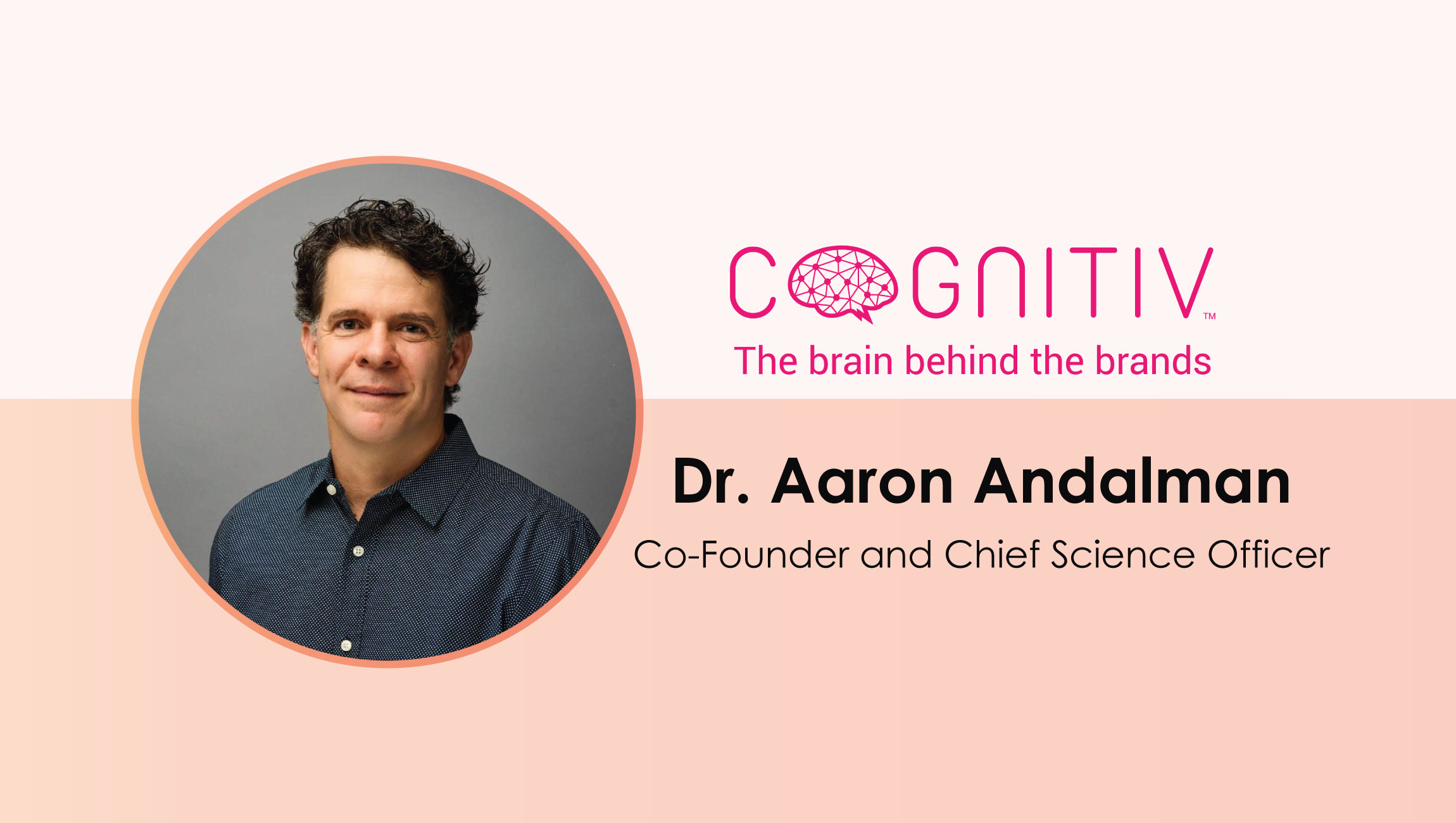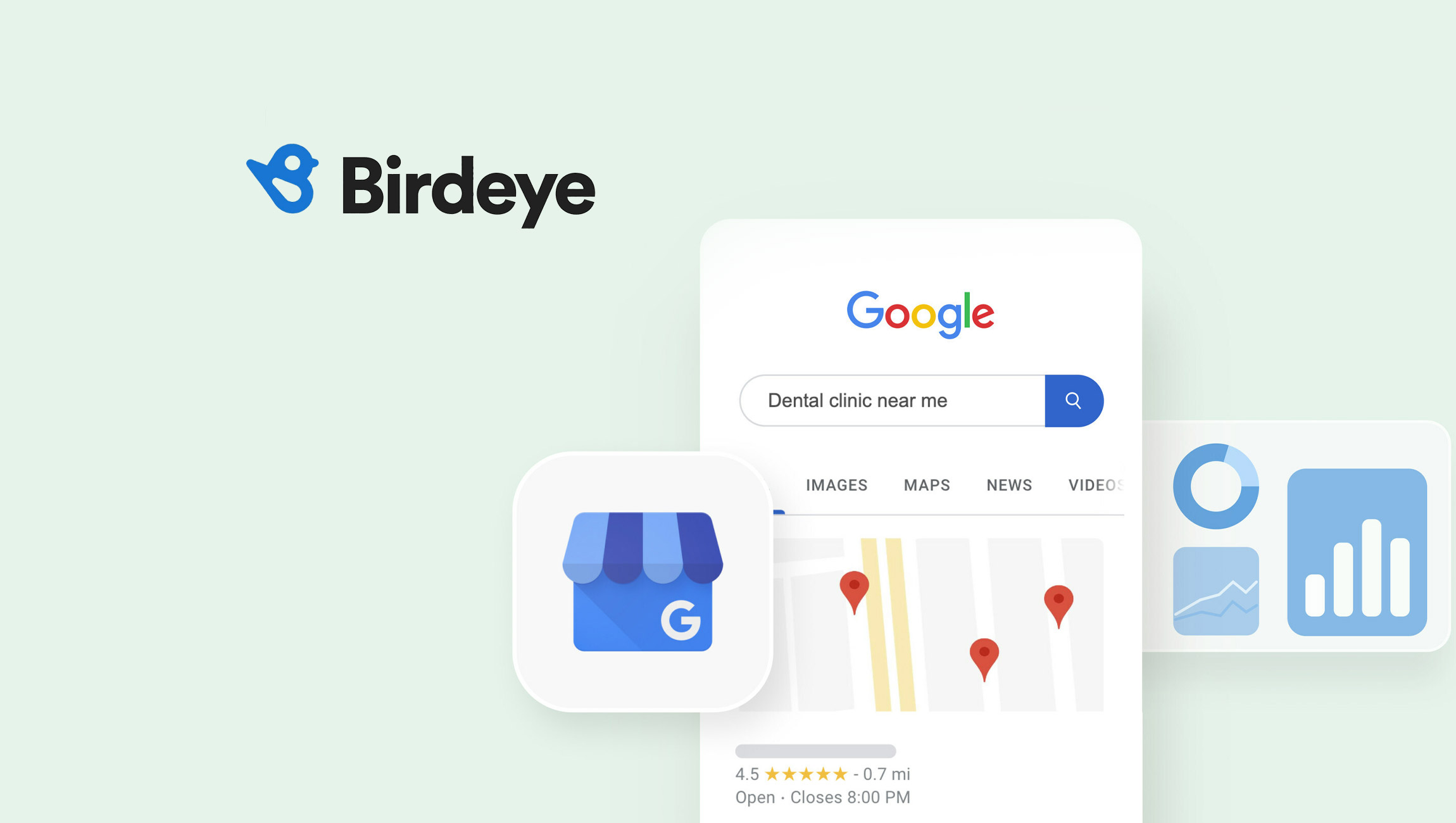Dr. Aaron Andalman, Co-Founder and Chief Science Officer at Cognitiv talks about the inspiration behind the platform while taking us through a few AI trends that marketers should pay more attention to:
___________
Welcome to this MarTech Series chat, Aaron, tell us about yourself and more about Cognitiv’s story…
At Cognitiv, our mission is to bring intelligence to advertising. We enable brands to connect with their audiences in more meaningful, relevant ways at scale. As the Chief Science Officer and Co-Founder of Cognitiv I lead our team of data scientists to develop custom deep learning applications for clients. We develop algorithms based on a combination of their unique brand goals and desired campaign outcomes. We use predictive AI technology that allows for advanced precision targeting, uncovering pockets of previously unidentified yet qualified net new consumers on recent, relevant content.
Cognitiv activates as a Dynamic Deal solution that runs through the DSP of your choice, or as a managed service DSP. We leverage OpenAI’s GPT technology throughout our products to understand context, and this is highlighted by our newest product Context GPT, which enables a full understanding of the meaning and sentiment of a page rather than focusing on keywords and URLs.
Before founding Cognitiv, I was a Helen Hay Whitney Fellow at Stanford University, developing advanced computational microscopy methods to understand learning and memory in biological systems. My experience with Deep Learning in Neuroscience revealed to me the enormous potential of the technology and sparked my desire to use artificial neural networks to address business challenges. This led to co-founding Cognitiv with my childhood friends Jeremy Fain, our CEO, and Marc Hudacsko, our Chief Technology Officer.
We’d love to hear more about Cognitiv’s latest AI solutions?
Cognitiv’s latest Diversity and Inclusivity Context GPT product features evolved from conversations our team has been having with clients and partners. We recognized a common theme – brands have D&I media buying goals that have been difficult for them to achieve. When we looked into it further, we found a gap in media buying that limits brands from reaching audiences across a broad swath of good quality content because of relatively blunt brand safety tactics.
We built a solution that leverages Large Language Models (LLMs) to enable a more nuanced understanding of page content, helping brands achieve D&I goals and reach audiences across more content.
With Cognitiv’s Diversity feature, brands can more effectively discover and reach diverse audiences by analyzing the demographic composition of users on a given page. With the ability to target diverse makeup at the page level, for the first time, brands have the power to scale their message and support publishers who produce more inclusive content.
The use of GPT AI for Inclusivity provides an intuitive understanding of a page’s intent, giving brands access to suitable and relevant content for the first time at scale. Brands can actively buy inclusive or neutral media aligned with their unique brand values.
These features are just one example of what we are doing with AI. It is really about unlocking new possibilities for the industry and improving the overall experience for the consumer.
How is AI impacting media buying processes today?
Machine learning (ML) has significantly transformed the media buying landscape over the past two decades, introducing unprecedented efficiency and effectiveness in targeting, optimization, and spending. This transformation has been driven by advancements in algorithms and computing power, enabling advertisers and agencies to leverage vast amounts of data for more informed decision-making. In the last four years, there has been a remarkable evolution in this domain, primarily due to breakthroughs in deep learning—a subset of machine learning. Deep learning has powered the development of sophisticated tools, including ChatGPT and similar technologies, which are enhancing the capabilities of machine learning.
Deep learning’s impact on media buying is multifaceted and profound. The ability of new forms of AI to generate content and understand complex datasets is pushing media buying towards more automated, intelligent systems. These systems can manage large-scale campaigns with greater efficiency, reducing the need for manual intervention and allowing for more strategic, creative thinking. As a result, the role of media buyers and marketers is evolving, with a growing emphasis on leveraging these technologies to drive innovation and competitive advantage.
For the first time, ML algorithms can understand the subtleties of text and images with a degree of nuance that was previously unattainable. This leap in technology has not only improved the precision of content analysis and audience targeting but has also introduced the ability for machines to generate tailored creative text and imagery at scale.
This shift is compelling the industry to rethink its approach to media buying. Advertisers and agencies are focusing on integrating these newer technologies into their strategies to enhance targeting, creative development, and overall campaign performance, as some of the older applications of machine learning in media buying are rendered outdated. Deep learning algorithms offer a more holistic understanding of content and consumer behavior, and bring more flexibility and nuance than methods like simpler predictive models and keyword-based approaches.
Marketing Technology News: MarTech Interview with Riikka Söderlund, CMO at Katana
Can you share your observations around the state of AI today and its growing impact across key areas in digital marketing?
Advancements in AI have transformed the techniques and strategies digital marketers use to produce results. Data-driven campaigns have provided deeper insights that help optimize campaigns, targeting audiences more accurately and effectively. Additionally, generative AI has reinvented how content and context are evaluated for ad placement. Brands are no longer limited to following a rigid list of brand-safe keywords, using technology that understands language on a much more nuanced level, unlocking new audience targeting opportunities, and ensuring ads are shown to the most relevant audiences at the right time, not only maximizing the return on advertising spend reaching existing customers but scaling this return to reach net new customers as well.
Why is it becoming more important for brands to focus on diversity fundamentals across their overall culture and brand essence?
Not only is the general best practice of business to treat and represent everyone equally and fairly, but evidence supports that this mindset is good for business. Brands often miss out on reaching a huge percentage of their multicultural audience by underspending on inclusive content.
Today’s multicultural population represents a huge opportunity. The cultural makeup of the United States is changing, and our old methods for reaching people needs to be rethought. There is a measurable gap in how effectively advertisers reach “underestimated audiences,” often with outdated language and assumptions. It is even entrenched in our measurement methodologies.
Purchasing power for African American, Asian American, and Native American consumers increased from $458 billion in 1990 to $3 trillion in 2020. Hispanic buying power has grown substantially over the last 30 years, from $213 billion in 1990 to $1.9 trillion in 2020. Consumers are more likely to buy from companies that represent them in advertising. For example, 69% of Black consumers said they would be more likely to buy from a brand that positively reflects their race or ethnicity.
If you had to share a few AI trends that will lead the martech and adtech space in 2024 and beyond, what would you talk about?
In 2024, brands will be keen on rapidly incorporating the latest advancements in AI into their workflows and processes, The forefront of this shift will be marked by the integration of generative AI for creative content generation and Large Language Models (LLMs) to enhance contextual targeting. These technologies promise to revolutionize the creation of personalized, engaging content and refine the accuracy of targeting to unprecedented levels. Alongside this integration, the development of multi-modal models stands out as a significant new AI technology, enabling computers to understand more subtle aspects of context like layout and interplay between images and text (think memes). This deeper comprehension will enable improved predictions related to attention predictions and allow avoidance of Made-for-Advertising (MFA) sites by distinguishing between genuine content and ad-dense, generic pages. Such advancements should help ensure that advertising efforts are directed towards quality content, thereby enhancing user experience and optimizing ad spend efficiency.
The drive towards incorporating AI is not just about enhancing operational efficiency but also about embracing inclusivity and precision in reaching diverse audiences. This includes a strategic push towards multicultural media buying, reflecting a broader and more inclusive approach to market engagement. By leveraging AI’s capabilities to tailor content and strategies to diverse audience segments, brands are poised to forge deeper connections and unlock new market potentials. The combined effect of these technological advancements heralds a year of significant change, positioning AI as a central pillar in the strategic evolution of the martech and adtech landscapes, where efficiency, inclusivity, and innovation become the hallmarks of success.
Marketing Technology News: Personalisation Versus Intrusion In The Era of AI Marketing
![]()
Founded in 2015, Cognitiv is the first Deep Learning Advertising Platform. Leveraging cutting-edge technology and data science to more accurately predict consumer behavior and understand nuance, Cognitiv enables brands to connect with their customers in more precise, relevant, impactful moments at scale. Cognitiv activates as a Dynamic Deal run through the DSP of your choice, as a managed service DSP, or through our industry-first Context GPT product. Cognitiv is on a mission to bring intelligence to advertising.
Dr. Aaron Andalman is Co-Founder and Chief Science Officer at Cognitiv











